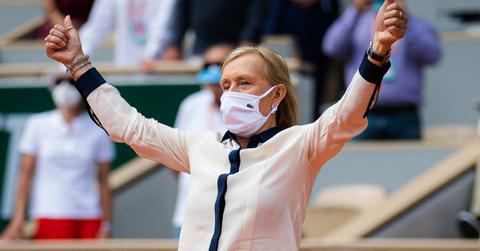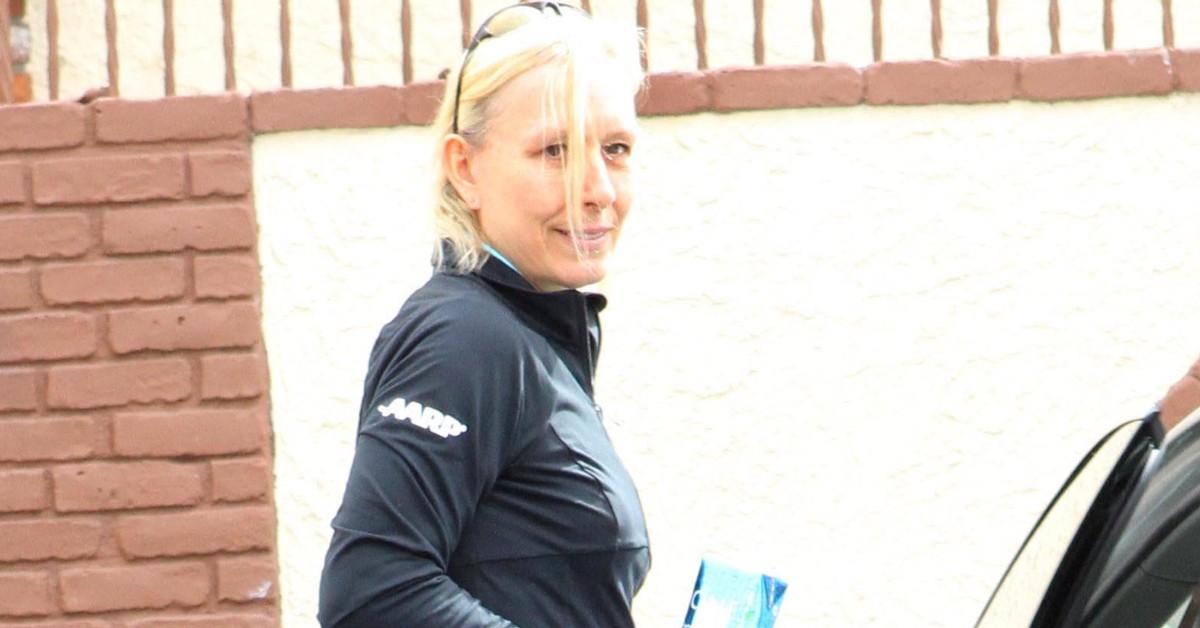Martina Navratilova’s TERF Comments Explained: Dog Drama Sparks Debate About Trans Rights
Martina Navratilova has had beef with many celebrities and athletes on social media over the years regarding trans rights in sports.
Published July 9 2025, 3:31 p.m. ET

In July 2025, tennis legend Martina Navratilova landed in headlines after posting about being refused entry to a Wimbledon restaurant for bringing her dog. What seemed like a trivial celebrity complaint quickly became something bigger.
It spiraled as she feuded with people in her comments, causing some of her controversial TERF comments over the years to resurface. This resulted in many desperate to have both the dog drama and Martina Navratilova’s TERF comments over the years explained.
What exactly happened at the restaurant that sparked so much chaos on social media? Furthermore, what is TERF, and what comments has she made that have people in such a frenzy? Keep reading for all the details.

Martina Navratilova’s TERF comments resurface after restaurant drama revives old tensions.
In a post on X (formerly Twitter) in July 2025, Martina shared a photo of herself with her small dog, Lulu, tucked in her post. She penned, “Well, tried to have dinner at the Ivy at Wimbledon, but they won’t allow Lulu into the restaurant, so plan B.”
She received a lot of sarcastic responses from many who accused her of coming off as a bit entitled by thinking she could just bring her dog into any restaurant because of who she was. Some criticized the idea, noting it was unsanitary to bring a dog into a place where people eat. She, however, fired back, telling people to “get over it” because her dog was “on the floor” and not all over the tables.
Later, her tone shifted when she shared another photo. “Plan B was actually better — always a nice quiet and quick meal, great pasta, and Lulu is welcome, here with the big boss,” she penned in the post via X. The post also included a photo of her with Lulu tucked in her purse.
While her time in the spotlight could have ended there, it resulted in a much larger discussion regarding her past remarks on trans athletes, especially given debates over transgender participation in sports being a hot topic.
What does TERF mean and what did she say that has people so upset?
For clarification purposes, the term TERF stands for “trans-exclusionary radical feminist.” The term is often used to refer to women who argue that transgender women should not be allowed in spaces exclusively for women. These spaces often include sports, bathrooms, or changing rooms. Martina’s critics say this label fits her because she believes trans women, even after transition, retain an unfair biological advantage over cisgender women in competition.
According to Out Magazine, she wrote an op-ed calling out trans women for competing in women’s sports. She argued it was both “cheating” and "insane."
“A man can decide to be female, take hormones if required by whatever sporting [organization] is concerned, win everything in sight and perhaps earn a small fortune, and then reverse his decision and go back to making babies if he so desires,” she penned.
LGBTQ+ groups responded fiercely. Once celebrated as an ambassador for inclusion, many advocacy groups swiftly cut ties with her and called her op-ed “transphobic.”
Over the years, she has maintained that her stance is not about bigotry but about fairness. She has said she doesn’t oppose trans people existing or having rights, but believes elite sports need clear categories to ensure fair competition. Her argument is that even with hormone therapy, the advantages of male puberty can’t be fully undone.
Her stance is frustrating to many who once saw her as a pioneering ally.
According to Olympics.com, part of what makes the backlash against her so strong is who she is. Martina wasn’t just a dominant tennis champion — she was one of the first elite athletes to come out as a lesbian at the height of her career, breaking barriers and fighting stigma in women’s sports.

Many expected her to extend that solidarity to all LGBTQ+ people, including trans women. Instead, critics say, her language reduces them to biology and denies them belonging in the women’s category. Many argue that by repeating talking points about “unfair advantages,” she gives fuel to broader political efforts aimed at excluding trans athletes entirely, even in youth and amateur settings.
Clashes with Megan Rapinoe and Daniel Radcliffe previously added fuel to the fire.
Martina has sparred with celebrities supporting trans inclusion via social media multiple times over the years. According to the Advocate, she criticized soccer star Megan Rapinoe for defending trans athletes’ rights to compete. She accused Megan of ignoring science and prioritizing politics over fairness.
In a separate report, the Advocate reveals she also targeted Harry Potter star Daniel Radcliffe in one of her outbursts. Martina told Daniel he needed to “be quiet” multiple times after he spoke out about transgender rights.
Martina’s dog complaint might have seemed trivial at first, but it quickly served as a reminder of her complicated role in LGBTQ+ advocacy. She remains a trailblazer who changed tennis forever by living openly while also taking what many consider to be a frustrating and shocking stance on trans rights in sports.
If you or someone you know is a member of the gay, lesbian, bisexual, transgender, queer, and questioning community and need support, the LGBT National Help Center provides free and confidential resources.